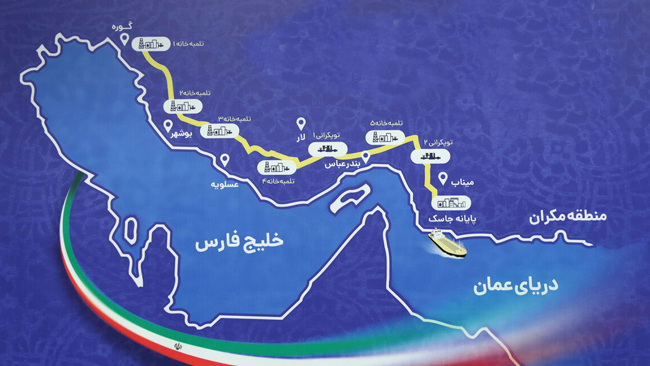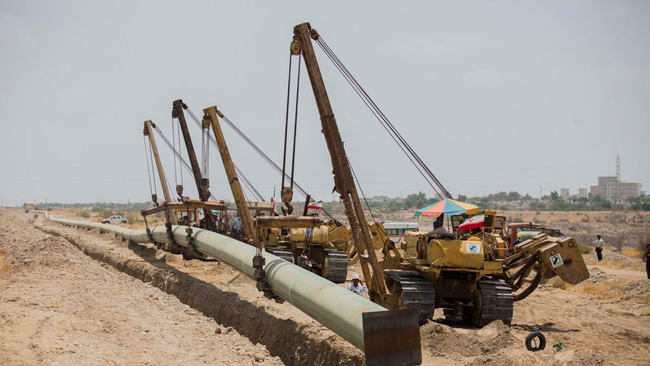Iran has officially launched a $1.8 billion oil pipeline project which will provide the country with an alternative route for crude oil exports that are currently transferred through the Strait of Hormuz.
The new 1000-kilometer-long Goreh-Jask oil pipeline in southern Iran will have a transport capacity of one million barrels a day, according Iranian Minister of Petroleum Bijan Zangeneh.
Zangeneh described the project as the most strategic project under President Rouhani administration, adding that it entails a 42-inch pipeline which would stretch over a 1000 kilometers from Goreh in Bushehr Province to Fars Provinces to Hormuzgan to western Jask to Makran region, where Iran’s largest crude oil export terminal after Khark is being constructed.
He expressed hope that Iran would start crude oil exports from Jask terminal by the end of the current Iranian calendar (March 2021).
He said that Iranian companies have constructed many equipment used in the pipeline project after foreign companies left under the pressure from the US.

The map shows the route of the new 1000-kilometer-long Goreh-Jask oil pipeline in southern Iran.
According to the minister, Mobarakeh Steel made the required slabs for the project and Khuzestan Oxin Steel Company made wide sheets for the first time in Iran.
Zangeneh noted 50 huge pumps with a capacity of 2.5 MW are needed for the project, adding that a contract was signed with three domestic companies worth of $50 million to build the pumps for the first time in Iran.

Iranian companies have constructed many equipment used in the pipes projects.
Mobarakeh Steel has produced and delivered 320,000 tons of sheet metal from 420,000 tons, and Oxin Steel had offered 250,000 tons of sheets from 385,000 tons so far; pipe manufacturers have also produced 440 kilometers out of 1,000 kilometers so far, of which 350 kilometers have been transported to sites and are being welded and laid, according to Zangeneh.
Zangeneh said that in addition to construction of the pumps, five pumping stations are also underway for the purposes of the project.
Moreover, he added, 20 half-million-tank storage tanks in Jask region were being built by the private sector under BOT contracts.
Iran’s minister of petroleum further stated that the Persian Gulf Star Refinery was also being connected to the pipeline to supply 600 to 700,000 barrels of gas condensate to the line. “Once this initiative is materialized, if necessary, gas condensate can be exported through Jask as well,” Zangeneh said.